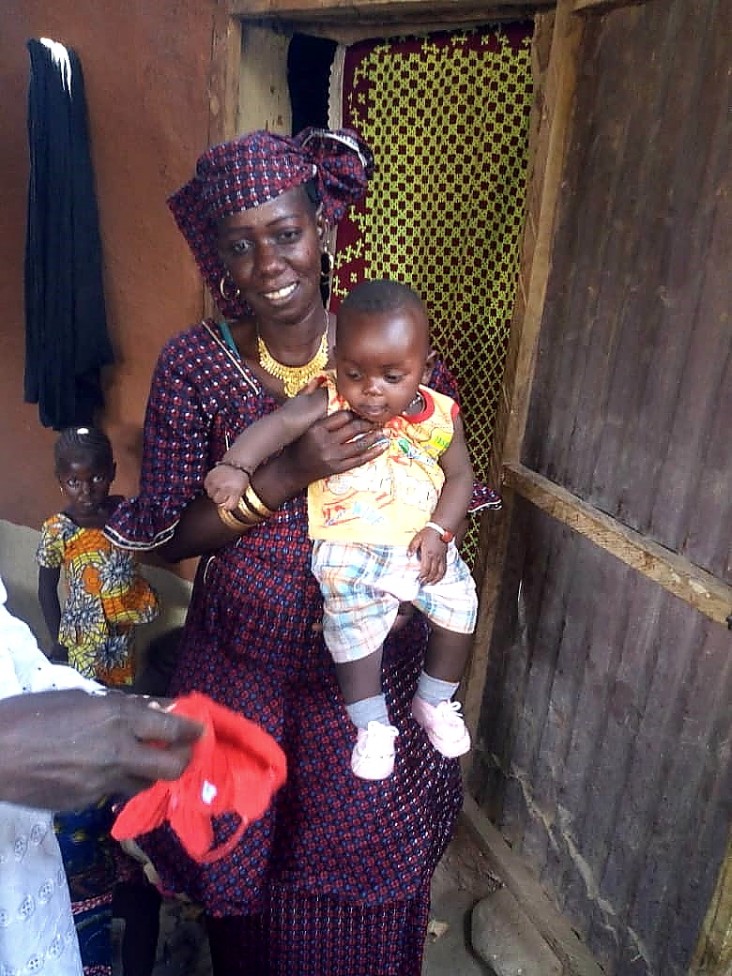Speeches Shim

“Thanks to the community action group, I went to consult myself, to know that I was pregnant and took the necessary actions to preserve my life and that of my child. - Ms. Guido Drama”
In Mali, maternity services remain underutilized. Although 80% of pregnant women attend antenatal consultations, only 43% are able to make four consultations before giving birth. About 33% of babies are born at home each year with a large disparity between urban and rural areas. Korera Kore health area is 86 km from the Nioro du Sahel referral hospital in the region of Kayes. Regrouping ten villages, it has a population estimated at 19,767 inhabitants, including 3,458 children under five and 4,345 women of reproductive age.
To address the underutilization of health services offered at the Korera Kore community health center, the USAID funded Services de Santé à Grand Impact (SSGI) helped with the setup of a community action group in April 2018. This group—made up of representatives of each of the villages in the health area—works with communities to identify community health problems, prioritize them, and develop, implement and follow an action plan.
According to Sidi Konate, the technical director of the community health center, after three long years of effort with little improvement, the community action group set the goal of increasing the community health center’s indicator rates for maternal health. The rates for both antenatal consultations and delivery rate by a qualified health personnel both improved quickly. To achieve this impact, community action group’s members have undertaken home visits targeting women of childbearing age. This is how the group President met Ms. Guido Drama.
"When I was sick and abandoned at home, the president of the group visited me and advised to go to the community health center for consultation. I was reluctant, but she reassured me and accompanied me to the center and pre-funded my medical expenses. Unexpectedly, I was pregnant. With her support and advice, I was able to complete four antenatal consultations visits, “recalled Guido Drame.
Drame gave birth to a boy at the community health center without any difficulty. She is fine and her child too. The establishment of the community action group has created a better collaboration between the association which manages the community health center, the mayor’s office and the village authorities. This collaboration led to a perceptible change in the health area. Members of the group held a series of general meetings in the villages of the health area. At one of these meetings in the village of Lakoulé, an advocacy made by the community action group resulted in a decision by the village chief and his counselors to prohibit home births while there is a maternity specialized for this. They decided to work together.
This has resulted in an increased use of community health center services by the populations. The proportion of deliveries with a qualified health personnel increased from 59.9% in 2018 to 95.5% in 2019.
In total, the SSGI project has set up 257 community action groups in 28 health districts of Mali, which contribute to improving the health of women and children of their localities. These groups help build the community’s resilience regarding health issues. Ownership of community action groups’ interventions by local communities make the work of the groups’ members easier. The Services de Santé à Grand Impact is a 5-years project of $46 million aiming to reduce or eliminate maternal, newborn, and child deaths in Mali. The project is implemented in Kayes, Koulikoro, and Sikasso regions, and six communes of Bamako and Gao districts.

Comment
Make a general inquiry or suggest an improvement.